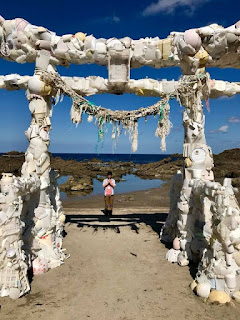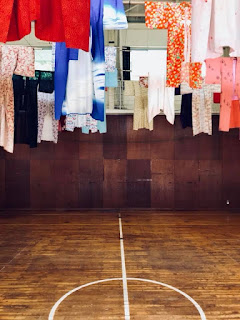Menelaos Gkartzios updates us on his sabbatical in Japan
Based at the University of Tokyo, I have already spent two months in Japan. I was expecting a futuristic office, to find myself in a building from the previous century (almost a rarity in Tokyo), with windows overlooking elegant ginkgo trees. Aside from indulging in autumn leaf changes, my time here is spent doing a couple of things. First, I am teaching undergraduate and postgraduate students a module on ‘Rural Sociology and Development’. The course is probably the most important experience of my work life here, because it puts me in a direct relationship with the University and its students – an extremely talented cohort. I was worried about my students’ English (let alone my own, ehm, Japanese), to realise that students not only speak English, but they can ask questions too: ‘But what is the purpose of rural sociology?’ an undergraduate student asked in my first class. I couldn’t be happier.
Regarding fieldwork, I am continuing my work on ‘rural arts’, following the Working Group on ‘Doing Art in the County’ with Julie Crawshaw (Northumbria University) and Marie Mahon (National University of Ireland, Galway), back at this year’s European Society for Rural Sociology conference. I discovered a well-established tradition of ‘outdoor’ art festivals (outside the city galleries, art museums and ‘creative hubs’), thanks to the vision of Fram Kitagawa, who is responsible for a few art festivals across uplands, islands and remote areas in Japan. Few weeks ago, with my colleagues from the University of Tokyo, we attended an extraordinary art festival in the remote peninsula of Ishikawa, the Suzu 2017 Trienale. The artists re-used closed schools, abandoned train stations, derelict houses and old fishing huts, asking the most critical and poignant questions about the region’s rural future: extreme rural depopulation is a major issue here. At the backdrop of a declining rural economy, the festival venues were spread over the peninsula, across Japan’s very own satoyama and by the Sea of Japan. Inherent in the festival’s approach was, to a westerner at least, a different way of being and working in the natural environment, whereby nature is neither idealised and romanticised, nor dominated and overexploited. My research tools: an ethnographic diary, interviews with art professionals, reflexive surveys from other visitors – finally, yes, fieldwork.
Like a ‘rolling stone’, I decided to travel and connect as much as I can with the country’s rural sociology community. Apart from the current President of the International Rural Sociology Association who is Japanese and whom I am visiting, there is also an Asian Rural Sociological Society. So, I am going on a tour: I am giving invited seminars at Kyoto University, Kindai University and Chiba University, while my public lecture in Tokyo University will be later this month. A rural planning trip to tsunami affected villages and attendance of recovery meetings is also already scheduled. A few writing and research projects are on the way, including the first and promising Routledge Companion to Rural Planning. I am experiencing tremendous kindness and support from my Japanese colleagues. Drawing on some linguistic fascination I have written about before my arrival, I am trying to learn Japanese. I don’t think anything else demonstrates so unequivocally the richness and magic of this culture, than its language; it offers me possibilities of being, thinking and writing about this new world I had never imagined. Still like a fish out of water I guess, but learning to fly.





